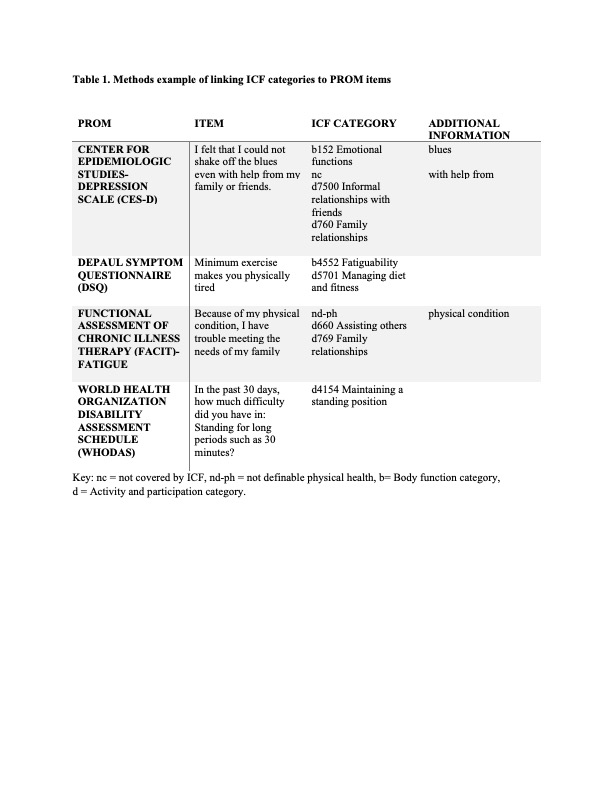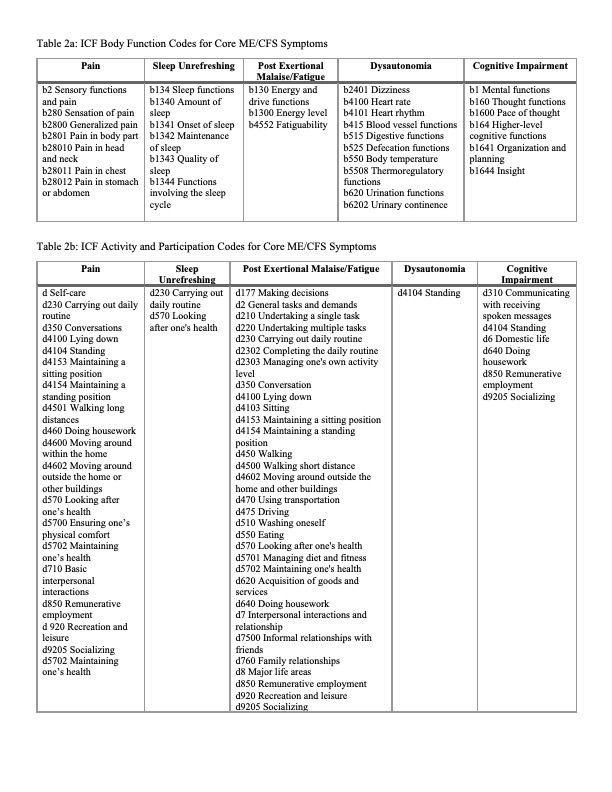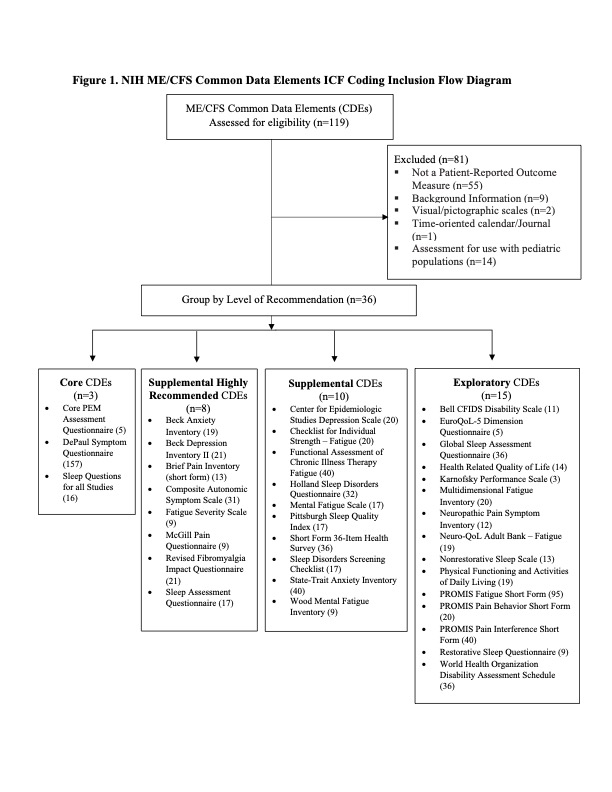Session Information
Session Type: Poster Session B
Session Time: 8:30AM-10:30AM
Background/Purpose: Myalgic Encephalomyelitis/Chronic Fatigue Syndrome (ME/CFS) is a devastating multi-system chronic disease, estimated to affect 1.5 million adults in the United States. The disease is associated with immune, neurological, metabolic, cognitive and sleep impairments compounded principally by Post-Exertional Malaise (PEM) and dysautonomia associated with a pathological level of fatigue. Among people with ME/CFS, 70% cannot work; 25% are home- or bed-bound, and recovery is rare. There are no FDA-approved drugs or treatments. Diagnosis of ME/CFS is challenging due to many changing and persistent symptoms and often relies on a diagnosis of exclusion. Rheumatologists are among the handful of clinicians who treat patients with ME/CFS.
The National Institutes of Health (NIH) identified 119 Common Data Elements (CDEs) for use in people with ME/CFS. However, most CDEs are not targeted specifically for those with ME/CFS. The World Health Organization (WHO) International Classification of Functioning, Disability and Health (ICF) provides a framework to understand CDE items. The aim of this study is to use the ICF to categorize ME/CFS CDE items administered as Patient Reported Outcome Measures (PROMs). This work will provide a foundation to select the most appropriate CDE assessments and guide future development of an advanced, psychometrically-sound symptom based Computerized Adaptive Test (CAT) to assist rheumatology professionals in the treatment of patients with ME/CFS.
Methods: We reviewed all CDEs and excluded those that: 1) are not PROMs; 2) provide participant socio-demographic characteristics and medical history only; 3) use visual or pictographic scales; or 4) are for pediatric patients only.
We applied ICF linking rules1 to identify and code meaningful concepts for all items. Items were divided among five researchers for independent coding and codes were compared. Coding discrepancies were noted and discussed until a consensus was achieved (Table 1. ICF Coding Example).
Results: We identified 36 PROMs comprised of 944 items (Figure 1). All coded items fit into two ICF components: (1) Body Function (b codes) and (2) Activity and Participation (d codes). Body Function codes were as follows: Energy and drive (most frequently used), 14.9% (n=210) of the 1413 total codes; Sensation of pain 14.7% (n=208); Sleep functions 11.9% (n=168); Fatiguability 11.5% (n=163); and Emotional functions 9.7% (n=137). Only 11.1% (n=157) of items were coded in the Activity and Participation component. Table 2 presents ICF codes for core ME/CFS symptoms and functions.
Conclusion: NIH ME/CFS CDEs are comprised of items that assess key areas of Body function; however, relatively few items assess the impact of ME/CFS symptoms on Activity and Participation. Extreme limitation in the ability to engage in physical and cognitive activities is a hallmark of ME/CFS. Results demonstrate the value of using the ICF conceptual framework to examine item content to assist rheumatology professionals in selecting appropriate assessments for their patients and to inform the future development of item banks for psychometrically-sound assessments.
1.Cieza A, et al. (2005). J Rehabil Med.
To cite this abstract in AMA style:
Bailey H, Vasudevan A, Hickey E, Ledingham A, Slavin M, Kazis L, Tompkins R. Myalgic Encephalomyelitis/Chronic Fatigue Syndrome: Creating a Foundation for Linking Patient Reported Outcomes Measures with the International Classification of Functioning, Disability and Health [abstract]. Arthritis Rheumatol. 2021; 73 (suppl 9). https://acrabstracts.org/abstract/myalgic-encephalomyelitis-chronic-fatigue-syndrome-creating-a-foundation-for-linking-patient-reported-outcomes-measures-with-the-international-classification-of-functioning-disability-and-health/. Accessed .« Back to ACR Convergence 2021
ACR Meeting Abstracts - https://acrabstracts.org/abstract/myalgic-encephalomyelitis-chronic-fatigue-syndrome-creating-a-foundation-for-linking-patient-reported-outcomes-measures-with-the-international-classification-of-functioning-disability-and-health/



